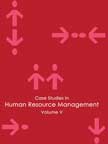Succession Planning at Ranbaxy - Family Drama, Corporate Style
|
|
ICMR HOME | Case Studies Collection
Case Details:
Case Code : HROB057
Case Length : 18 Pages
Period : 2000-2004
Pub Date : 2004
Teaching Note :Not Available
Organization : Ranbaxy
Industry : Pharmaceuticals
Countries : India
To download Succession Planning at Ranbaxy - Family Drama, Corporate Style case study
(Case Code: HROB057) click on the button below, and select the case from the list of available cases:

Price:
For delivery in electronic format: Rs. 500;
For delivery through courier (within India): Rs. 500 + Rs. 25 for Shipping & Handling Charges
»
Human Resource, Organization Behavior Case Studies
» HRM Short Case Studies
» View Detailed Pricing Info
» How To Order This Case
» Business Case Studies
» Area Specific Case Studies
» Industry Wise Case Studies
» Company Wise Case Studies

Please note:
This case study was compiled from published sources, and is intended to be used as a basis for class discussion. It is not intended to illustrate either effective or ineffective handling of a management situation. Nor is it a primary information source.
Chat with us

Please leave your feedback

|
|




<< Previous
An Un-Expected Departure? Contd...
|
His leadership and managerial skills were responsible for the company's
excellent performance in both the domestic and the international markets. In
2002, Ranbaxy was one of the fastest growing pharmaceutical companies in the US
and was very close to achieving the $1 billion revenue mark in 2004.
However, there were other analysts who believed that Brar's resignation would
not affect the company's performance. This was because he had laid down a
well-crafted vision (Garuda Vision) for the company and the strategies to
execute that vision had already been put in place.
|

|
Commenting on the conflicting views in the media regarding this issue, an
analyst remarked, "We feel that this slight aberration is mainly because of
the sentimental issues involved." 5
But most analysts held the view that the Brar-Ranbaxy episode was yet
another case of displacement of professional management by the
promoter/owners of a company.
This event stirred afresh the debate over
"family control over management" in family-owned businesses (particularly in
the Indian context) - the issue of whether the family asserts undue pressure
on management simply to reflect its control over the business.
|
|
Succession Planning - What it's All About
The world over, organizations use the concept of succession planning
to a greater or lesser extent as a way to identify and cultivate
employees with leadership qualities to assume greater
responsibilities in the future. The term 'succession planning' (also
referred to as replacement planning) can be described as, 'a process
through which leaders identify and help groom their replacements
before moving on to another position themselves.' |
Experts in the field of Human Resources Development believe
that if formal succession planning practices are adopted and implemented,
organizations stand to derive considerable benefits.
Such organizations are able to plan for future leadership positions. Also, they
avoid the dangers of ill-timed promotions of inadequately trained managers.
Succession planning also helps in recruitment as well as retention of employees
by drawing more employees to the organization and also by filling up senior
level positions from within the organization.
Commenting on the advantages derived from succession planning, Donald C
Wegmiller, Chairman, Clark Consulting, Healthcare Group, says, "Succession
planning may reduce the need to bring in as many people from outside, which
involves expenses, adaptation time, and lack of continuity."6.
Succession planning does not necessarily mean the exclusion of candidates from
outside. But companies first look at the possibility of promoting suitable
candidates from within the organization, since they are already familiar with
the prevailing culture and the firm's practices...
Excerpts >>
|
|










